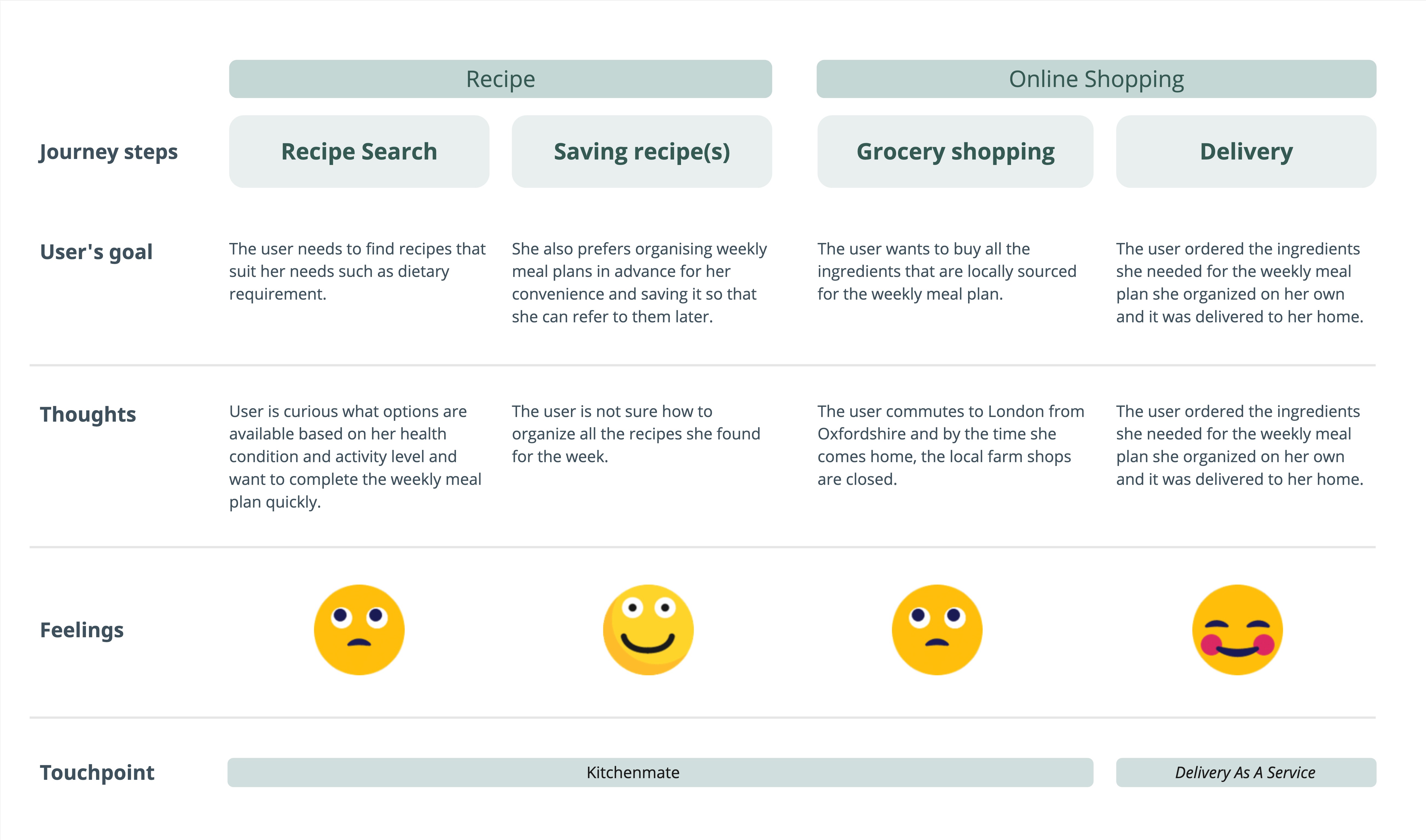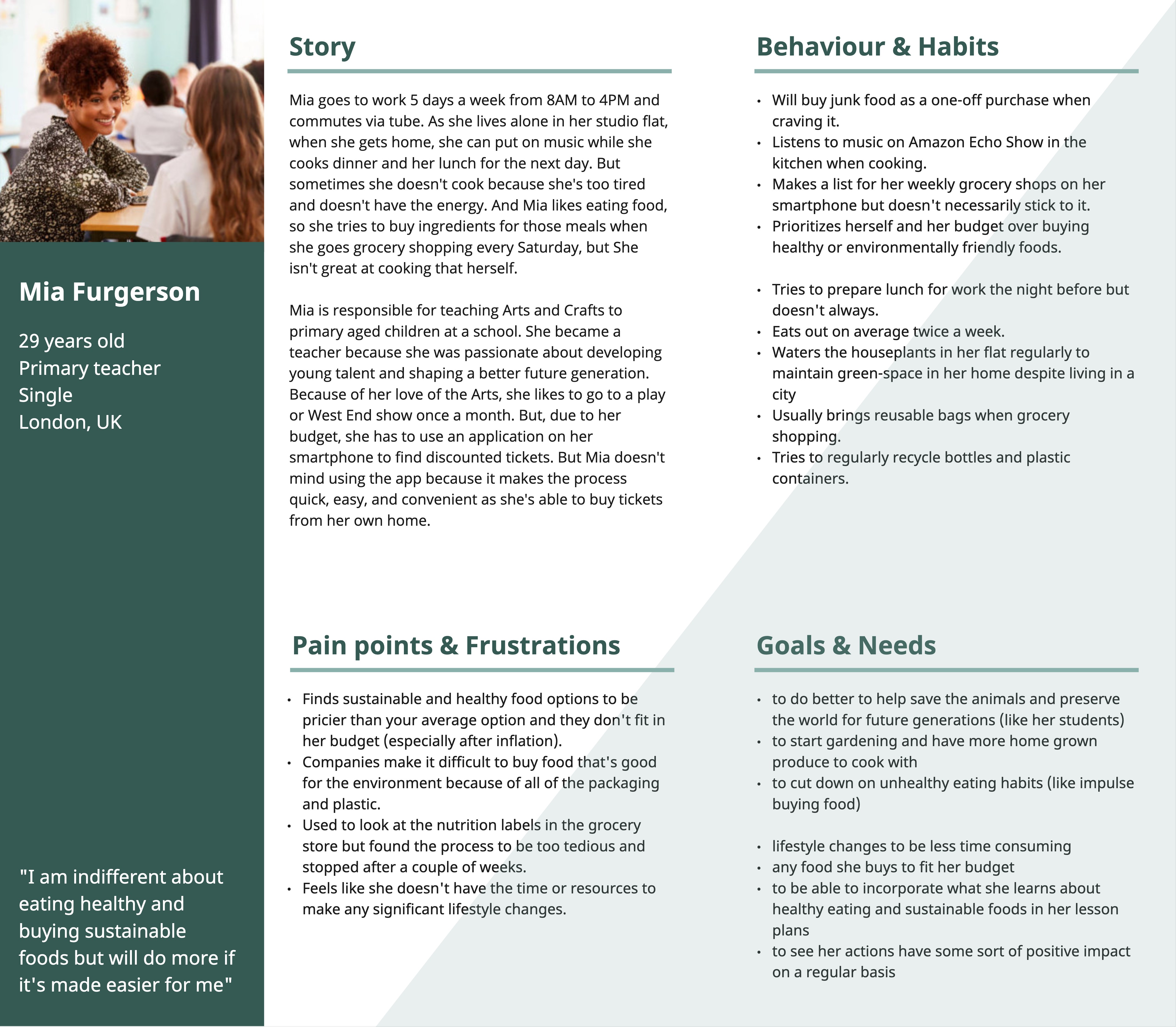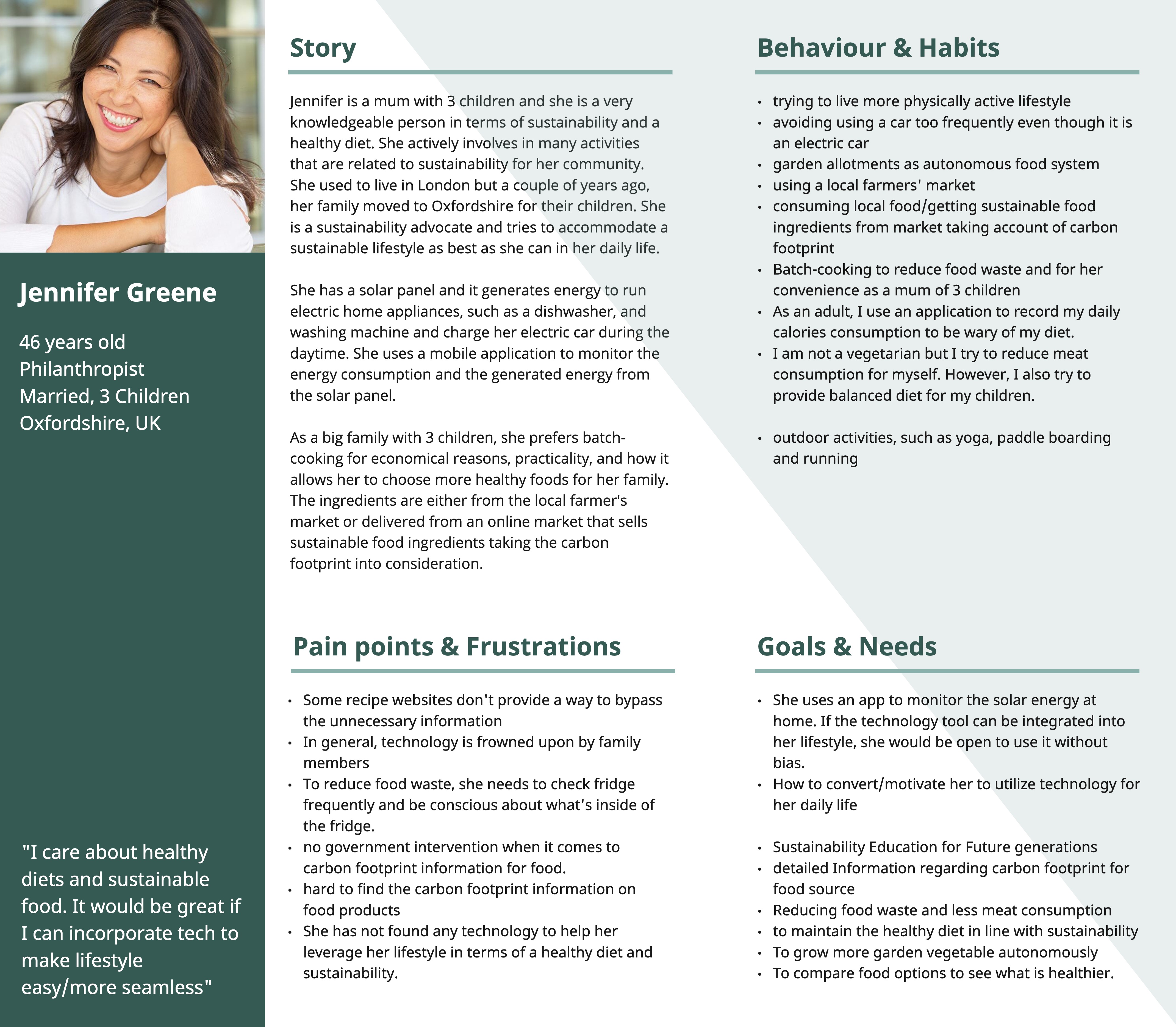Generative research:
Kitchenmate
Explore with curiosity
and discover insights
Design Objectives
The design objective was to create an app, Kitchenmate to motivate users to maintain a healthy lifestyle in line with sustainability.
Background
This is a generative research to uncover the needs and pain points of the current market with similar technologies. The technology baseline was the Amazon Echo Show smart home device which provides multimodality for diverse users.
User Segmentation
It is crucial to uncover behaviours, lifestyles, and decision-making of the two different segmentation groups 1 and 2 as two contradictory groups could complement a lack of data and prevent it from skewing the research result to one side.
| No. | Segmentation |
|---|---|
| 1 | Someone who cares about sustainability and healtheady living |
| 2 | Someone who may be indifferent to sustainability and healthy living |
| 3 | Someone who has used a similar product and has a positive attitude towards the technology, but this person may or may not care about sustainability and healthy living |
| 4 | Someone who has experience with a similar product but has a negative attitude towards the technology |
Interview Questionnaire
In order to focus on the topic with interviewees, the questions were usually dealt with within the scope of;
- technology habits
- lifestyle in the context of healthy living and sustainability
The interview questions can be found below and covered the interviewee's behavioural patterns as consumers, sustainability advocates and with technology.
- Intro questions
- What's your daily life like? (This question might be too general)
- Tell me about your day in relation to a healthy diet and sustainability.
- Can you tell me about your daily life in the context of sustainability and a healthy diet?
- Can you tell me about your daily life in relation to technology?
- How do you put sustainability into practice in your daily life?
- In terms of cooking in line with sustainability,
- Can you tell me about your diet habits?
- Tell me about the last time you cooked taking sustainability into consideration.
- What do you associate with a healthy diet?
- What triggered you to consider a healthy diet?
- Where do you purchase food ingredients?
- How often do you go to the supermarket?
- Do you have any concerns or ideas in terms of your current food sustainability/your habits to improve the status quo?
- In relation to technology habits,
- Do you use any technology while cooking? Can you tell me more about it?
- Have you paid for any technology tools for it?
- How did you hear about it? / How did you find it out?
- What triggered you to buy apps or technology gadgets?
- What are your motivations and expectations?
- Have you ever felt frustrated while using a product(s)?
- In relation to sustainability and consumer habits,
- Tell me about the last time you ———————— (more specifically ask questions) (Real life story)
- How do you feel about putting food sustainability into practice in general?
- What hinders you from doing it?
- So did you have to find alternative options? / Did you have to work around it because you couldn't do that?
- Can you tell me more about the alternative options/workarounds?
- When it comes to incorporating sustainability into your daily life, is there anything you would like to do but you can't/don't?
Research methods
- Naturalistic Observation
- Contextual Inquiry
- User Interviews
Personas
Personas can only be shown on a tablet or bigger screen due to the image size restriction.
User Journey Mapping

What I learned
Generative research was an extraordinary experience and led me to question why there are many products with unmet needs and often unsatisfactory or subpar experiences for end-users on the market.
Setting a clear goal from the outset significantly increases the likelihood of success. Research can transform the mindset and culture of your teams and stakeholders. It's not about what you want to build; that comes later during the ideation stage when we use creativity to solve users' problems as a designer and problem-solver. Instead, focus on gaining a holistic understanding of the problem space, especially that of your target users.
Every research faces constraints and barriers; it is the researcher's skill that determines how effectively potential risks are minimized and barriers are overcome.

